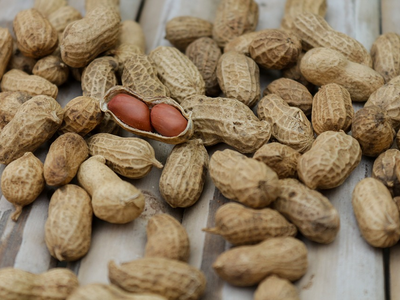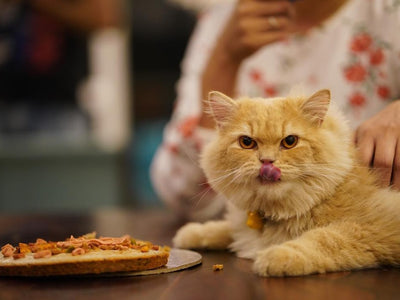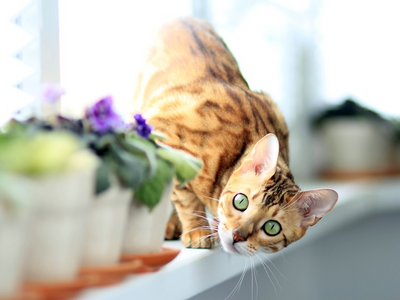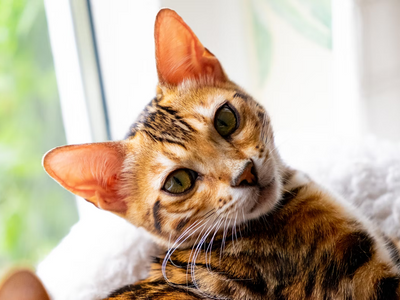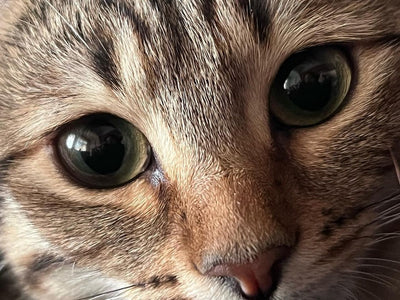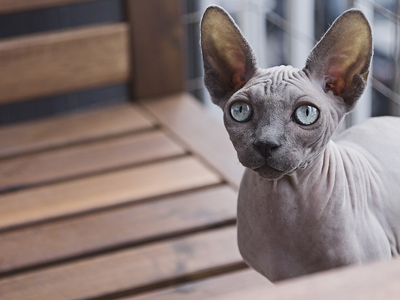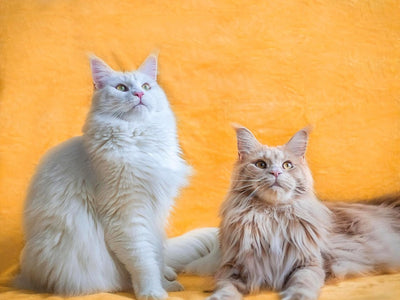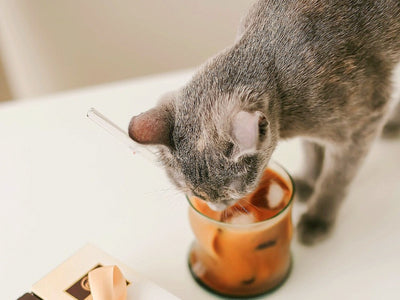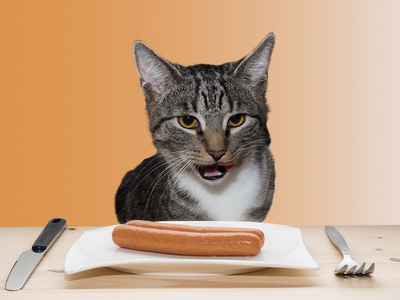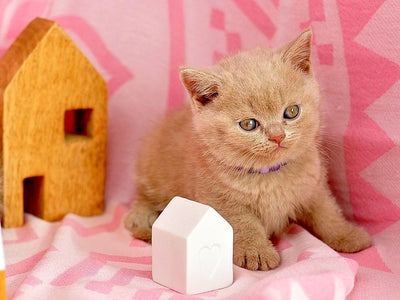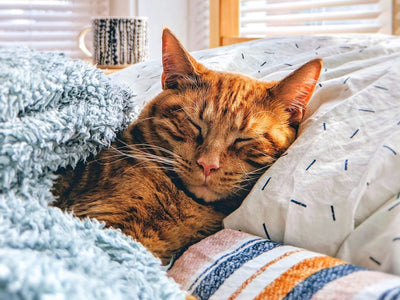03.12.2021
What to do about an old cat not eating—support healthy eating habits with the right type of food
As cats get older, they start to mellow and take life even easier than before.
The signs of old age in cats are not easy to spot as they creep up gradually. You may notice your feline spending more time resting, being less willing to explore, and choosing easily accessible spots to relax around the house.
Your senior cat’s feeding habits may also change. Your feline may favour wet or semi-moist food over dry and might become more fussy or sensitive as time goes by. You’ll often have to resort to raw or homemade food to stimulate your feline’s appetite.
As their bodies slow down, your cat’s diet becomes crucial in keeping them healthy and happy. You should also pay more attention to signs of illness.
One of the most obvious—and critical—signs is when your older cat stops eating. There could be many causes for anorexia in a senior cat, but your prompt action is required to nip any illness in the bud.
If you have an old cat not eating, get Untamed’s advice on possible causes and the best courses of action.
Now, why did I come out here again?
Source: Pixabay
What changes occur as cats age?
The ageing process in cats is similar to ours. The most common developments in older cats include:
- Degeneration of the senses
- More sensitive stomach and digestive system
- Tendency to contract Urinary Tract Infections (UTIs)
- Loss of muscle mass
Degeneration of the senses
A cat’s sense of taste, smell, and vision will deteriorate over time. This can result in:
- Loss of interest in the food they used to wolf down
- Unwillingness to explore new areas or even visit known places difficult to access
- Increased nervousness and susceptibility to frights
You may have to adjust your cat’s surroundings and food regimen to compensate for the decreased awareness of sight, smell, and flavour.
A more sensitive stomach and digestive system
Older cats are less able to digest food. You will often find that low-quality products cause IBS, vomiting, diarrhoea, constipation, stomach sensitivity, or food allergies that your cat never experienced before.
You may also notice that your senior cat eats smaller amounts more frequently—a clear sign that your kitty’s digestive system is slowing down.
Tendency to contract UTIs
UTIs can affect cats of any age, but mature cats become more susceptible to:
- Cystitis
- Bladder stones
- Other minor UTIs
Adjusting your senior feline’s diet to help maintain the pH levels in the urinary tract can alleviate this sign of advancing age.
Loss of muscle mass
Like humans, older cats tend to lose muscle mass, particularly if they are on a low-quality diet based on grains and cereals.
As a cat's metabolism slows down, an energy-dense diet rich in animal protein is essential to maintain muscle mass. It also helps minimise the effect of any joint deterioration your feline may be suffering from.
Your older cat will probably eat less than kittens or adults. It’s not a reason for concern—the only time you need to worry is when your cat stops eating altogether.

Relax, then relax, and later relax a bit more. Tough life!
Source: Pixabay
What can be a simple reason for an elderly cat not eating?
With all the changes in their bodies, senior cats can be forgiven for not being the ravenous eaters they once were.
If your older cat misses a day of food, you don’t need to suspect the worst immediately—the reason could be as simple as the following:
- Your kitty is full
- Gastrointestinal issues or a hairball is causing distress
- The cat can’t smell the food
- The food bowl has been moved
- Stress has affected their appetite
- Dental problems are causing pain
Your kitty is full
Cats eat to replenish the energy spent exploring, hunting, or playing.
As these activities decrease with age, you may find that your cat eats less or skips a meal altogether. Don’t panic—it may simply be a case of your cat not having expended much energy since their last meal.
Gastric issues or a hairball is causing distress
If your elderly cat has an upset tummy or a hairball, you may find the food bowl untouched until the problem has resolved itself.
Older cats tend to shed more or experience minor digestive problems. The best nutrition can simultaneously:
- Improve digestive health
- Help hairballs pass through the gut
- Keep the coat in better condition to minimise hair loss
The cat can’t smell the food
A cat’s sense of smell is a crucial driver in whetting their appetite.
If your older feline has the sniffles or simply can’t smell as keenly anymore, the drive to eat may not be triggered as quickly.
You can fix this by:
- Gently warming the food
- Mixing dry kibble with some warm water or an aromatic broth or soup
- Feeding meals enriched with cat jelly or gravy
The food bowl has been moved
If your senior kitty’s eyesight is deteriorating, moving the food bowl to a new location may make it impossible to find.
If you notice that your older cat seems disoriented and is not eating, you should make sure the food bowl hasn’t been moved inadvertently.
Stress has affected their appetite
Cats love routine at the best of times, and a minor change in the environment can be enough to stress a senior cat out.
Such changes can include:
- A new cat in the neighbourhood or—even worse—the house
- New daily routines, feeding times, or relaxation periods
- A new gadget emitting an unexpected noise or switching on randomly
- Too many visitors
When stressed, a cat’s instinct is to hide and wait until any potential danger has passed. It may extend to missing one or more mealtimes.
Dental problems are causing pain
Many senior cats develop dental problems that make eating painful.
These could include:
- Mouth lacerations or cuts
- Tooth loss
- Gingivitis or other gum diseases
- Mouth ulcers
A quick examination of your cat’s teeth and gums can determine whether there is a problem. In case of a dental issue, try mixing dry food with wet or switching to wet meals completely to make chewing easier and less painful.
None of these reasons for not eating is serious, and most can be rectified by rearranging your household to take account of your elderly feline’s new needs.

Hungry but not hungry.
Source: Pixabay
Can an elderly cat’s loss of appetite point to something more serious?
Your older cat not eating can be a sign of a more serious condition. As the number of candles on their cake increases, senior cats become ever more likely to develop:
- Hyperthyroidism
- Kidney failure
- Heart problems
- Diabetes
- Cancer
Hyperthyroidism
Hyperthyroidism severely affects feline metabolism. It can result in rapid weight loss or weight gain, and you may notice your cat either eating ravenously or not eating at all.
The good news is that hyperthyroidism is controllable with a carefully regulated diet and vet-prescribed medication.
Kidney failure
Kidney failure is common in cats of advanced age but unfortunately only becomes apparent when at least 75 per cent of renal function has been lost.
While the condition is irreversible, your vet can prescribe medication to alleviate the symptoms and maintain your cat’s quality of life. A high-quality diet is essential to maintain organ function and prevent muscle wastage.
Heart problems
If your cat is suffering from heart problems, you may notice a loss of appetite accompanied by:
- Shortness of breath
- Seizures
- Acute paralysis of the hind legs
You should get to the vet as quickly as possible.
Diabetes or pancreatitis
Diabetes often occurs in older cats with a history of obesity.
Low-quality foods can play a role in triggering diabetes or pancreatitis as they often contain large amounts of carbohydrates. These can be a fast-release energy source but tend to flood a cat’s body with sugar.
This puts massive pressure on the pancreas to release insulin leading to reduced pancreatic efficiency in later life if a cat eats carbs regularly.
A healthy diet is essential to offset the effects of diabetes in senior cats.
Cancer
A loss of appetite is a common sign of cancer. Cats are prone to all forms of cancer after the age of ten.
Regular screening is vital for senior cats, and you should plan a visit to the vet every six months to catch any signs of cancer at the earliest possible stage.
What symptoms should concern you?
If you notice a change in your older cat’s feeding habits, you should check to ascertain the exact nature of the anorexia.
The most common symptoms of potentially dangerous conditions are:
|
Symptom |
Possible cause |
|
Old cat has stopped eating and drinking |
● Heart issues ● Liver failure ● Gastro problems ● Stress |
|
Older cat is not eating but is drinking |
● Kidney failure ● Diabetes |
|
Older cat is not eating dry food |
● Dental problems |
Cats can go for some time without food, whereas they need water regularly. Your older cat not eating for more than 24 hours can cause serious knock-on effects.
After a day, your cat will begin mobilising fat reserves to provide energy, which can quickly lead to the liver being flooded with fat cells.
As processing these cells is next to impossible, a cat’s liver can easily become overwhelmed and deposit fatty tissue over its surface, thereby reducing liver function.
This syndrome is known as hepatic lipidosis and can quickly cause long-term liver damage, while therapeutic care to restore liver function often lasts up to eight weeks.
What can you do when an old cat stops eating?
The best thing you can do for your older cat that has stopped eating is get them to a vet.
If there’s a serious issue, your vet can begin treatment immediately. In case there is no cause for alarm, you can make your senior cat’s diet more attractive and closer to their natural feeding habits.
Cats are obligate carnivores, so the best food for your cat contains the correct balance of:
- Animal protein
- Animal fat
- Essential vitamins
- Required minerals
Animal protein
Cats need certain amino acids to:
- Build muscle
- Maintain skin and coat health
- Keep organs functioning optimally
The amino acids they need—except for taurine—can be found in any protein source, but cats are best adapted to getting them from meat.
Large quantities of animal protein mean that cats need less food to cover their needs. This reflects their natural feeding regimen—wild cats will typically catch and eat small prey up to 20 times a day.
The protein sources are measured by their biological value (BV), which measures what percentage of the protein a cat can metabolise. Check out the table below for details:
|
Protein source |
Biological value |
|
● Chicken |
98% |
|
● Salmon ● Sardines ● Prawns ● Tuna |
94% |
|
● Liver |
92% |
|
● Beef ● Pork or ham |
87% |
|
● Soya |
68% |
|
● Wheatgerm ● Corn ● Sweetcorn ● Other vegetable proteins |
Below 65% |
Cat food containing protein with a BV of over 90% will help your feline:
- Retain muscle mass
- Maintain organ function
- Keep a sleek and shiny coat
If your older cat is not eating, you should avoid vegetarian or vegan meals and stick to high-quality, grain-free products with meat as the main ingredient. The values you should look for are:
|
Nutrient type |
Ideal percentage |
|
Animal protein |
More than 50% |
|
Fat |
Up to 20% |
|
Carbs/fibre |
Always below 3% |

An array of Untamed goodness
Image (c) Untamed
Animal fat
Although a subpar energy source when compared to protein, fat does deliver twice as much energy as carbs. It also contains essential fatty acids that help maintain the structural integrity of cells.
The taste of animal fat also drives some cats wild, so you may be able to solve the issue of your older cat’s appetite with food rich in animal fat.
Essential vitamins
Cats can synthesise vitamins C and K themselves but need the rest in their food.
The best sources of vitamins are presented in the table below.
|
Vitamin |
Best sources |
|
Vitamin A |
● Liver ● Fish ● Butter |
|
Vitamin B complex |
● Meat ● Milk ● Liver |
|
Vitamin D |
● Liver ● Kidney ● Fish oil |
|
Vitamin E |
● Liver ● Wheat germ oil ● Milk ● Butter |
Required minerals
Cat food should contain trace amounts of:
- Magnesium
- Phosphorous
- Zinc
- Calcium
You should avoid products with high sodium levels because cats in general—and older cats in particular—have difficulty processing it in large amounts. The result can be kidney damage.
The best cat food to entice a senior cat to resume eating after a hiatus should be:
- Simple, with a small number of high-quality and clearly defined ingredients
- Full of animal protein
- Spiced up with a bit of fat
- Tasty, with an enticing smell
Is Untamed good for older cats?
If your older feline has stopped eating, Untamed is the best you can do to get the juices flowing again.
Untamed is highly nutritious with a taste cats are mad about. All our recipes respect feline nutritional needs, and our meal plans are tailor-made to give your kitty the right nutrients to maintain health.
Our products adhere to these hard-and-fast principles:
- Exclusively animal protein
- High protein amounts
- Vet-formulated recipes
- Human-grade ingredients
- Ethical production methods
Exclusively animal protein
Every tin of Untamed contains only animal protein sources.
Your cat will get all the nutrients needed to stay healthy, and you are not feeding them artificial:
- Preservatives
- Colourants
- Flavour enhancers
Untamed products are also free from known allergens, so even cats with sensitive stomachs should be happy and healthy after every meal.
High protein amounts
Untamed cat food contains up to twice the amount of protein you find in cheaper commercial cat foods.
The results are visible in your cat’s muscle mass, energy levels, and weight control.
Vet-formulated recipes
All our formulas have been developed in collaboration with vets.
Every tin of Untamed contains all the ingredients your cat needs and is complete and balanced.
Human-grade ingredients
When it comes to the ingredients that we choose for our cat food—it’s only good enough for Untamed if it’s good enough for humans.
All our ingredients are human-grade, and you’ll find no vague ingredients or long chemical names on our end product label.
You can rest assured that your senior friend is getting the best of the best.
Ethical production methods
Untamed is committed to providing you and your kitty with ethically manufactured products.
Our meat and fish are procured from sustainable sources, and our packaging is 100% recyclable.
Untamed is the non-plus-ultra of the cat food world—try us now and get your senior kitty an energy, health, and beauty booster!

Happy and eating again with Untamed
Image (c) Untamed
How to get Untamed
If your senior cat has stopped eating, the time to try Untamed is now.
You can purchase our cat food online and get free shipping. All you need to do is:
- Give us some details about your feline companion
- Review our customised meal plan
- Order your trial pack
Once your cat has chomped their way through the trial pack, we will deliver regular monthly meal packs to your door—hopefully for a long time to come!
Getting our monthly cat food subscription can usher the return of your cat’s appetite. You should notice the following benefits of going Untamed:
|
Timeline |
The Untamed effect |
|
Within a week |
● More energy ● Less mess in the litter tray |
|
After two months |
● A sleeker, shinier coat ● Fewer problems with hairballs |
|
Within four months |
● A leaner, more muscular physique ● Fewer digestive problems |
|
Life-long |
● Natural weight control ● No need for treats or extra dietary supplements |
You can cancel, pause, or edit your monthly meal box anytime. No commitments!
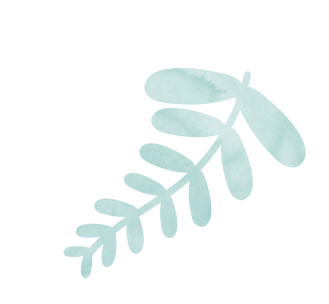

![Associated image for What human food can Sphynx cats eat? [Comprehensive list]](http://untamed.com/cdn/shop/articles/what_human_food_can_sphynx_cats_eat_Featured_400x300_crop_center.jpg?v=1648705074)
